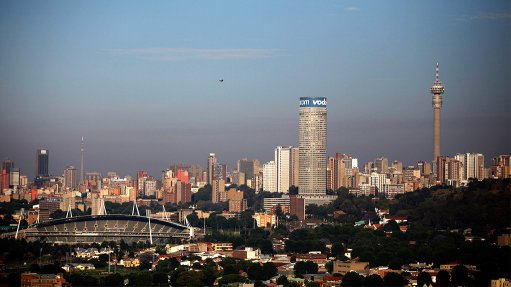
The MMC for Environment and Infrastructure Services in the City of Johannesburg, Cllr Nico de Jager, will officially re-launch the recently revamped Air Quality Monitoring station in Orange Farm, south of Johannesburg, on Friday 7 June 2019.
The launch will take place at the Orange Farm Home Affairs office from 09:00 to 11:30.
The event, held under the theme “Air Pollution”, seeks to encourage learners, residents and businesses to explore sustainable alternatives in an effort to reduce pollution.
A number of City and provincial departments will be in attendance including Environment and Infrastructure Services, Joburg City Parks and Zoo, Joburg Water, City Power, Environmental Health, Gauteng Department of Environmental Affairs, Gauteng Department of Agriculture & Rural Development and private stakeholders such as the Vaal Triangle Air-shed Priority Area Forum.
The event forms part of the World Environment Week, which encourages worldwide awareness and action for the protection of the environment. It raises awareness regarding measures required to protect human health and the environment.
Air pollution is a major environmental risk to health.
The City has eight monitoring stations across all regions, but the focus is weighted towards low-income communities with a strong reliance on coal-fired stoves. Since 2004 the City has spent over R5 million building and revamping the monitoring stations.
The stations monitor pollutants that are seen as problematic and dangerous to human health such as sulphur dioxide (from fossil fuel such as coal and oil power plants), ozone (from reaction of volatile organic compounds with the sun and oxides of nitrogen), carbon monoxide (emitted primarily from vehicle exhaust, furnaces and generators), nitrogen dioxide (emitted from internal combustion of engines), particulates (fine particles from smoke, haze, biomass burning and automobiles). Vehicles and domestic fuel-burning are the largest sources of air pollutants in the city.
The data collected from the stations assist the City to make informed decisions to better manage air pollution and develop policies that recognises the importance of conserving natural resources.
This relates to one of the City’s main strategic priorities of “preserving our resources for future generations”, which help ensure the sustainable use of natural resources and protection of the environment.
The City of Johannesburg continues to demonstrate strong leadership in managing and reducing its vulnerability to potential global and local environmental shocks.
Issued by the City of Johannesburg